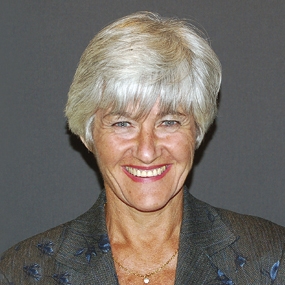Doctors and patients - two nations divided by a common language

Hon Consultant Anaesthetist
There is an oft repeated misconception that anaesthetists choose their specialty because they can’t communicate with conscious patients. This is demonstrably untrue. Take the average anaesthetic assessment on the morning of a routine day case list. We must find out what we need to know about the patient, tell the patient what we think they need to know about the procedure, answer questions about what they want to know (usually something quite different) and finally persuade them to trust us, literally, with their lives - all in the space of less than ten minutes. We do this successfully every day. I think we are very good communicators.
However, we know that the opportunities for miscommunication are vast. Think about some of the words we use. ‘Topical’, to the average politically aware citizen, does not mean something you smear on your skin to make it numb. It means something outrageous a politician said on the news last night. ‘Local’ has nothing to do with anaesthesia, everything to do with their neighbourhood. ‘Regional’ brings to mind, in the current fevered climate at any rate, the differences in COVID lockdown arrangements between north and south.
Consider this sequence: “John felt a thrill on inspiration. This led, unexpectedly, to aspiration. Ventilation was required to mitigate the consequences.” If John is an anaesthetist, this cardiac case obviously ends up in ITU, on a mechanical ventilator. On the other hand, if John is, say, a budding actor, the thought of aspiring to an Oscar is so exciting that he has to open a window.
It is horrifying to look through clinical notes from the last century, when doctors would routinely write phrases like ‘Thank you for referring this nice old duck’, or ‘NFN’ (normal for Norfolk). We have improved. It is no longer acceptable to insult our patients. However, we are still careless with some of the clinical shorthand we use. We still occasionally talk of a ‘missed abortion’, which must sound to a vulnerable and possibly sad patient as if she is being accused of trying unsuccessfully to end her pregnancy. We talk about ‘trial of labour’, or, worse, ‘failed trial of labour’, which suggests to the patient that she has been tried and found wanting, and the resulting caesarean section is in some way her fault.
Words and diagnoses, which to us sound relatively benign, can be terrifying to patients. To the doctor ‘lesion’ means anything or nothing – an all-purpose word to describe something abnormal. It’s probably the word Humpty Dumpty had in mind when he said, “When I use a word, it means just what I want it to mean – neither more nor less.” To many patients, it means ‘cancer’. Worst of all, though, is ‘heart failure’. As anaesthetists, we encounter ‘a touch of cardiac failure’ frequently in elderly patients. Not a problem. Usually, easily managed with a judicious combination of diuretic, fluid management and careful monitoring. To the patient the term ‘heart failure’ means precisely that – actual failure of the cardiac pump, with inevitable consequences. It is a term I try not to use, especially preoperatively.
To misquote George Bernard Shaw, doctors and patients are two nations divided by a common language. To quote him correctly, he also said that all professions are conspiracies against the laity (he didn’t like us much). We certainly can use jargon to obscure, and that is a conspiracy, but all the evidence shows that working in partnership with patients produces better results. The English language is a powerful tool. Like all tools it should be used with care.
Anna-Maria Rollin
